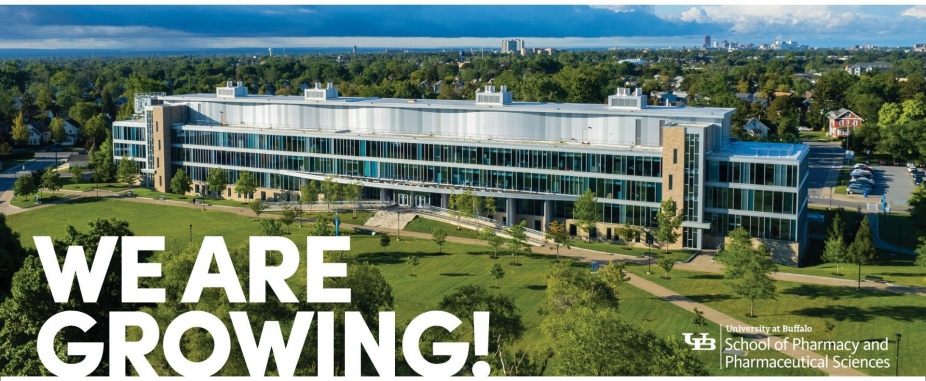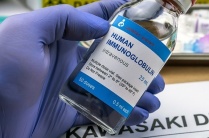
January 2023
Welcome to the next edition of the Buffalo Pharmacy Bulletin (BPB) where we will continue to explore and discuss social issues in health care and how we as academicians, practitioners and scientists can lead and support these issues. The BPB will also keep you updated on the latest school news, highlighting the outstanding work of our UB SPPS community.
“The best way to ensure we can support and mentor our future pharmacists and research scientists is to make sure we are reviewing and discussing what is currently happening in the dynamic and ever-changing world we live in.”
Pharmacy: The Sure Bet for the Future Success of Health Care
According to both Casey Stengel and Yogi Berra, two of the greatest triple-threats (player-manager-philosopher) in Major League Baseball history, it is dangerous to make predictions, especially about the future. Longtime fans of the Chicago Cubs would agree. And yet, we do it all the time. Humans seemingly cannot help but look to the horizon and wonder/guess/predict what might be at the end of a particular road. We do it in sports, economics, politics, and yes, even in professions such as pharmacy.
Primary Care at Community Pharmacies
With respect to pharmacy, the profession will continue to change in ways that, we think, are predictable. According to a recent Wolters Kluwer survey: Pharmacy Next: Health Consumer Medication Trends, Americans are anxious for a change in traditional models for receiving primary care services, and roughly 60% could foresee themselves receiving such care from a pharmacist. An even higher number (more than 70%) would be comfortable with having a pharmacist prescribe medications for them. These desires for change, though, come with recognition that several hurdles – economic, legislative, and political, among others – need to be navigated to achieve meaningful change in how primary care might be delivered through community pharmacies.
Pharmacy Proven: One Million Lives Saved: $450B in Health Care Savings
Long-standing forces, including health care cost-containment and more facile access to care opportunities, have been shaping the pharmacy profession for the past two decades. These factors have been reinforced by a growing sense of urgency to address structural issues that result in inequities in access to and outcomes of care for many individuals and communities. Pharmacy’s contributions during the COVID-19 pandemic were also instrumental in furthering, uncovering and addressing these health care barriers. Recent estimates suggest that pandemic interventions by the pharmacy sector saved more than one million lives, prevented more than eight million hospitalizations, and saved roughly $450 billion in health care costs. The heroic response of pharmacists to the pandemic is nothing short of astonishing, and provides a real-world, real-time example of how unleashing the health care resources represented by pharmacists can impact our communities.
UB SPPS Creates New Path Forward: New PharmD curriculum will prepare students to lead innovative health care teams and be the drivers of novel research and scholarship
In the fall of 2023, we will begin the roll-out of a restructured Doctor of Pharmacy curriculum. The new curricular blueprint was thoughtfully crafted by our faculty in consultation with preceptors, practitioners, and student pharmacists with an eye towards where we believe the profession is headed, and what our graduates might be doing 20 years down the road. In this regard, perhaps we lean more towards the advice attributed to Abraham Lincoln that the “most reliable way to predict the future is to create it.”
New Faculty Recruitment

We are excited to announce a major expansion of our teaching and research enterprise through a transformational faculty hiring initiative:
DDDE Hub
Recruiting tenure track faculty to seed the development of our new Drug Discovery, Development and Evaluation (DDDE) Hub. Core areas include:
- Drug Discovery and Design
- Drug Delivery
- Quantitative Systems Pharmacology
- Translational Therapeutics
Division Heads
Recruiting tenure and non-tenure track faculty to implement and evaluate innovations in health care through cutting edge scientific discovery and education in the Departments of Pharmacy Practice and Pharmaceutical Sciences.
Department of Pharmacy Practice
Department of Pharmaceutical Sciences
Anticipated start dates for these positions will be throughout 2023. We are especially interested in qualified candidates who can contribute the diversity and excellence of our academic community.
Buffalo Faculty News

UB SPPS research teams led by Jun Qu, PhD, publish groundbreaking techniques for simultaneous whole tissue protein mapping along with high impact work in quantitative proteomics:

Pharmacy alumni and faculty work with research team to develop North America’s first test to predict Kawasaki disease
A new tool under development by UB researchers could one day help clinicians better predict resistance to immunoglobulin therapy among children with Kawasaki disease in the United States.

Waheed Adedeji, UB Center for Integrated Global Biomedical Sciences scholar, receives NIH award to study interaction of mental health and HIV medication in Nigeria
Waheed Adedeji, a UB Center for Integrated Global Biomedical Sciences (CIGBS) scholar and a clinician and scientist at the University of Ibadan in Nigeria, has received an Emerging Global Leader Award from the National Institutes of Health (NIH) to investigate the influence of antidepressants on HIV medication among patients in Nigeria.
UB Events
View upcoming events on the UB Events Calendar!
UB Alumni Webinars
Join UB alumni experts from across the globe as they share professional insights and advice during Webinar Wednesdays. Engage in upcoming webinars along with past sessions.

Thank you for reading our January 2023 edition of the Buffalo Pharmacy Bulletin. Please stay in touch! Send us updates on your own personal and professional accomplishments by filling out our alumni update form.
Regards,
Gary Pollack, PhD '84
Dean and Professor